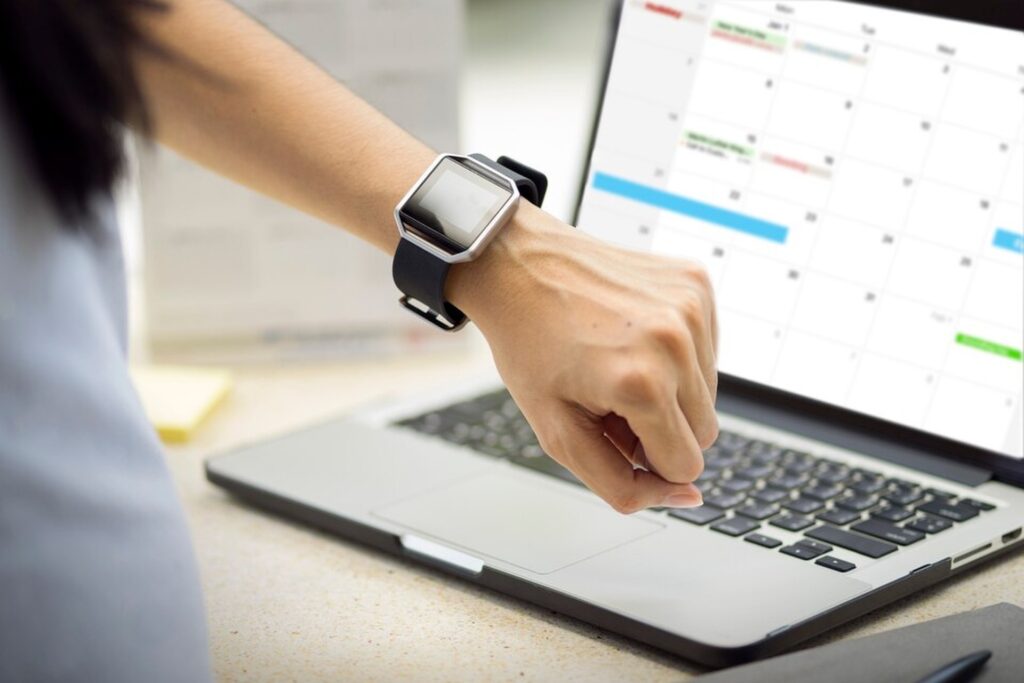Today it takes more than just willpower to form good habits. It is also about tools. Many of us use apps and wearables that track our habits to stay on track with things like fitness and focus. Artificial intelligence AI has been coming into this space more and more recently. AI doesn’t just keep track of habits. Along the way it makes suggestions and guesses based on what it learns from them.
How AI Is Changing the Way We Track Habits
The next best thing to write things down in a notebook is AI which can track your habits. AI tools often don’t require you to manually log data instead they track your behavior on their own. Like your smartwatch can tell when you’ve taken 10000 steps. Your sleep app can find your REM cycles. Some apps even look at how you use your phone, how productive you are or even the tone of your voice in messages.
Machine learning algorithms are used in AI habit trackers. In other words they look at what you’ve done in the past to guess what you will do next. In real time they can suggest changes. Your AI coach might tell you to move your rest day to Thursday if you always skip workouts on that day.
These tools are better than before. Plus they’re more tailored to you. A normal app might tell everyone the same thing but AI tools change what they say based on your goals, habits and way of life.
What Works Well: Strengths of AI in Habit Tracking

One of the best things about AI is that it can find patterns. AI knows more than just that you didn’t work out. When you sleep less than six hours you might find that you don’t want to work out as much. That is a very wise thought. It helps you deal with the cause, not just the sign.
Another strength is that it can be customized. AI is used by apps like Fitbit Whoop and Google Fit to give you feedback that is specific to you. Since these ideas come from your data they seem more useful. Not someone else.
Tools that use AI can also boost motivation. To help you stay on track many people use nudges, small prompts or reminders. They might say By now you often write in a journal. Do you want to think about today? It feels right on time and encouraging, not robotic.
Adding games is another win. The AI can either reward you for a good streak or push you when you lose motivation. Some tools change how hard tasks are for you based on how regular you are which keeps things interesting and doable.
AI that tracks habits often links things that are on different devices. Your watch phone and even smart home tech all connect and work together. This easy syncing provides a fuller picture of your habits without you having to do anything extra.
What Doesn’t Work: Common Shortcomings and Pitfalls

There are times when AI is wrong. One big problem is the situation. AI is very good at math but it has a hard time understanding why you do things. For instance it might notice that you aren’t working hard but not know that you are sick or on vacation.
Another worry is privacy. A lot of the time these tools get private data about where you are, how you sleep, your health or your emotional state. Some businesses don’t make it clear how they use or store customer data. Your habits could be used against you or made public if you don’t handle them properly.
AI suggestions don’t always feel right. If your job keeps you up late, general advice like going to bed earlier won’t help. AI has a hard time understanding cultural differences, personal values and priorities. This leads to advice that might make sense but doesn’t matter.
It is also possible to depend too much on the tool. People may not do much when AI makes too many choices. This might make you less responsible for keeping up a habit over time.
Problems with syncing or data that isn’t consistent between devices can stop the flow. The AI model will get the wrong data if your fitness tracker doesn’t connect properly to your habit app. That could lead to bad ideas or annoying mistakes.
Best Practices for Using AI Habit Trackers Effectively

To get the most out of habit trackers that use AI you should first pick the right one for your needs. Some apps are great for staying fit. Others pay more attention to mental health or productivity. Look at reviews. Take a look at free trials. Look for choices that let you make the experience your own.
Next make your settings unique. Don’t go with the goals that are given. Choose ones that fit your real habits and way of life. This helps the AI make better suggestions and give less feedback that isn’t useful.
Don’t forget that AI is just a tool either. Don’t let it make your decisions for you, use it to help you make them. First look at the trends it shows then think about how they fit into your life. Carefully make the changes.
It helps to keep track of progress over time. It is okay to miss one or two days but long breaks can make the AI confused. It won’t know if you’re getting better or if you stopped tracking. The feedback is correct even for short entries.
Be patient. Over time AI tools get smarter. Their suggestions get better as they gather more information. Do not expect perfect insights right away. Let the system learn your rhythms.
Conclusion
The way we keep track of habits has changed because of AI. It is smart, quick and made just for you. It makes us happy in new ways and helps us see patterns we might have missed. But it does have limits. AI doesn’t always get what’s going on. It can’t take the place of human judgment or responsibility. Privacy is still a big issue as well. AI habit trackers can be very helpful for personal growth if they are used carefully. Let AI help you form habits but let your values decide the way you go.
FAQs
1. Can AI Habit Trackers Replace Human Accountability
Not at all. They agree with it but people still need to be disciplined.
2. Are AI Based Habit Apps Safe For Sensitive Personal Data?
Only if the business has strict rules about keeping data safe.
3. What’s The Best Free AI Habit Tracker Available?
People like and find use in options like Habitica Finch and Loop.
4. How Accurate Are AI Predictions For Habit Building?
While they are getting better they still need human supervision.
5. Do AI Tools Work Better For Physical Or Mental Habit Tracking?
Tracking by hand is more accurate. Mental habits need a bigger picture.


